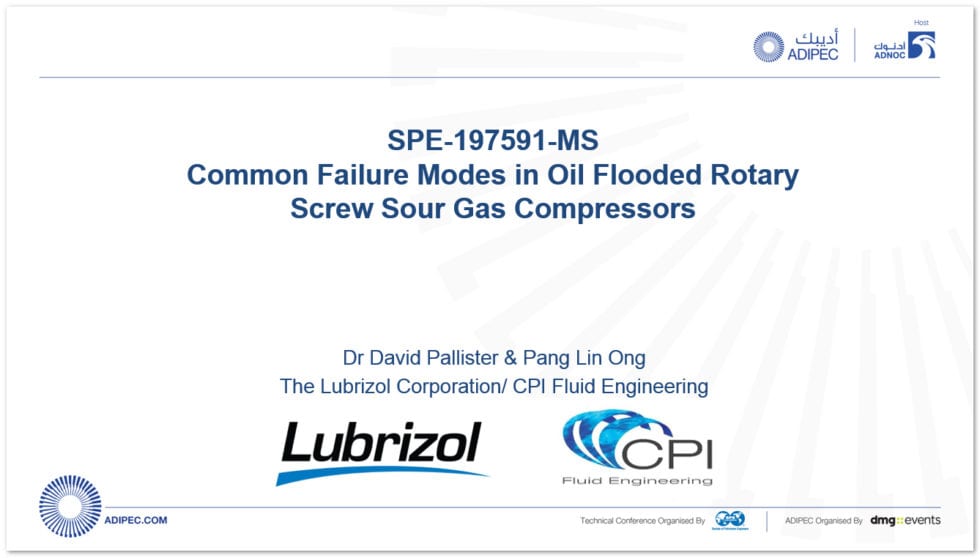Are you having reliability issues with your oil flooded twin-screw compressors? Are you seeing corrosive damage to your compressors in a supposedly “sweet” gas well? Do you know that there is specially formulated compressor oil that will mitigate the bearing failures in sour and corrosive gas environment?

Recently at ADIPEC 2019, CPI Fluid Engineering presented a technical paper on “Common Failure Modes in Oil Flooded Rotary Screw Sour Gas Compressors”.

Mining natural gas with twin-screw compressors often encounter reliability issues. In general, as a “sweet” natural gas well ages, the likelihood increases that corrosive gases will be encountered in the gas stream. Even some “sweet” natural gas wells will intermittently encounter elevated levels of water, hydrogen sulfide, carbon dioxide, carbonyl sulfide and sometimes, mercaptans and thiols. These compounds are corrosive towards steel, copper and brass and will substantially reduce the expected lifetime of oil-flooded twin screw compressors. The primary failure for twin screw compressors in these corrosive environments are often the journal bearings, thrust pad bearings or roller bearings.
Defining the failure modes of the compressors mining natural gas is of primary importance. Once the failure mode has been defined, new lubricants can be designed to inhibit these failure modes and extend the working life of the compressor.
CPI Fluid Engineering has developed lubricant solutions that inhibit the corrosive effects of water and hydrogen sulfide improve the reliability and extend the time to failure for oil-flooded twin screw compressors mining natural gas.


